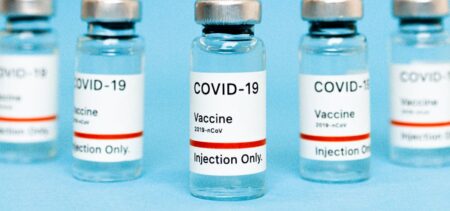With COVID-19 vaccines becoming more widely available around the world, and countries everywhere easing restrictions, a return to normal is now on everyone’s mind. While many activities are still recovering and regulations remain an important part of our daily lives, optimism is now rising for the first time since the beginning of the pandemic. This, however, does not mean the fight against the virus is over, nor does it mean science and technology have already won. Scientists and pharmaceutical companies around the world are not only facing new strains of the virus, but also new facts related to the crisis that may change the future of the post-pandemic world.
Here are 5 ideas to consider when thinking about the future, ideas that can help people, companies, and decision-makers plan for the future and prevent possible mistakes:
New Strains, New Problems
As India continues to inoculate its population, a new symptom is complicating treatments and increasing concerns. According to Reuters, mucormycosis or “black fungus” is a fungal disease that complicates the symptoms of COVID-19 patients on steroid therapy and of those already diagnosed with diabetes. Mucormycosis attacks the sinuses, the lungs, and even the brain. Although rare before the COVID-19 pandemic, this infection can become life-threatening in diabetic individuals and those with weakened immune systems.
India is facing new variants, a severe vaccine shortage, and a rise in mucormycosis cases. With a mortality rate of 50% despite it being treatable, the “black fungus” has the potential to influence the post-pandemic future.
Treatments Are Now Vital
Effective vaccine development and rollout are definitely the weapons that can reduce and ultimately end a pandemic. However, for the millions of people already infected with the SARS-CoV-2 virus, the development of treatments is just as important. The European Medicines Agency’s (EMA), an advisory group, has recently confirmed that sotrovimab, a treatment developed by GlaxoSmithKline plc and Vir Biotechnology can be used to treat the disease.
Sotrovimab is safe for use by adults and adolescents over the age of 12 and weighing at least 88 pounds. According to the research, it can reduce the risk of hospitalization for more than 24 hours or death by 85%, compared with placebo.
Investments in Biotech Booming
Maybe one of the most important and hard-learned lessons of the pandemic is the fact that we cannot hope to see a brighter future without investing in biotechnology and healthcare. BioNTech SE, a small German company, partnered with Pfizer Inc. to develop and produce the first COVID-19 vaccine approved in the U.S. and abroad. Not only is the vaccine a success, but other German biotech companies are also enjoying the effects of this achievement.
According to The Wall Street Journal, German biotech companies attracted $3.7 billion worth of investment capital in 2020, as a result of their performance during the pandemic.
Adapting to the Future
As more and more people are being inoculated around the world, a key question emerges: how long will the effectiveness of these vaccines last? According to Pfizer CEO Albert Bourla, a third dose will probably be necessary within a year of getting both shots. Another important piece of information provided by him was the fact that COVID-19 vaccines may become seasonal in the future, as new variants of the virus continue to emerge around the world.
Dr. Anthony Fauci, director of the National Institute of Allergy and Infectious Diseases, has recently stated that it is still too early to tell if a booster shot will be required in 2022. However, with so many unknowns still on the table, the best answer to this question might be to expect the best, while preparing for the worst.
Going into Detail
New dangerous variants of the SARS-CoV-2 virus are among the worst fears troubling scientists, pharmaceutical companies, decision-makers, and people across the world. While disease control methods are still essential in keeping the virus from spreading and evolving, avoiding introductions into animal populations is another crucial aspect, according to the World Health Organization (WHO). Curbing the spread of the virus and its variants remains just as important as last year, despite advancements in both vaccines and treatments.
According to the Centers for Disease Control and Prevention (CDC), the danger of contracting COVID-19 from an animal is considered to be low. The same cannot be said about spreading the virus among animals, however, and people with suspected or confirmed COVID-19 are advised to avoid contact with their pets.
The COVID-19 pandemic has already reshaped our future, so it should come as no surprise that our careful plans have to include facts that may change the post-pandemic world. From new dangerous symptoms to possible spread to animals, new problems demand both scientific answers and concerted efforts to protect the future.



































